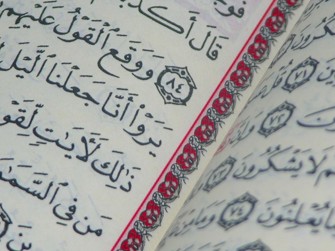The Culture Connection: Muslim Practices at the Time of Death
The Culture Connection blog series covers various customs and practices that someone involved in end-of-life care might encounter. Please refer to the introduction to this blog series for general advice. Last time, we looked at Islam and end-of-life traditions. Today we look at Islam after-death traditions.
 As a Muslim is nearing the end-of-life, their head should be elevated by a pillow. Family and friends usually recite Islam’s testament of faith, the Shahadah: “There is no God but Allah and Muhammad is His messenger.” At death, some Muslims believe the soul leaves the body and is in a transitional state until the Day of Resurrection, the Day of Judgement.
As a Muslim is nearing the end-of-life, their head should be elevated by a pillow. Family and friends usually recite Islam’s testament of faith, the Shahadah: “There is no God but Allah and Muhammad is His messenger.” At death, some Muslims believe the soul leaves the body and is in a transitional state until the Day of Resurrection, the Day of Judgement.
At the time of death, Muslims may say the following prayer (for men):
O Allah, ease upon him his matters, and make light for him whatever comes hereafter, and honor him with Your meeting and make that which he has gone to better than that which he came out from. O Allah, forgive me and forgive him, and grant me a good reward after him.
Some believe it is wrong for a non-Muslim to be present at the moment of death.
A hospice patient’s family may request that they be left alone with the patient if their death
seems imminent. Unless there is a medical reason not to, this should be respected.
Muslims prefer that the body be removed immediately.
This should be done by a funeral director approved by the family. The body will be washed and wrapped in white cloth. Non-Muslims should wear gloves so as not to directly touch the body. The eyes should be closed, the jaw bandaged to the head, and arms and legs straightened.
A funeral prayer is said for the deceased.
This prayer asks for Allah’s mercy and blessings, then the body is taken to the cemetery for burial. The body should face Mecca when placed on its right side. Attendees place dirt in the grave, beginning near the head. Grave markers or headstones are usually subtle and unobtrusive.
During the time of grieving, Muslims give comfort and solace to those who have suffered a loss and pray for forgiveness for the deceased.
Jerry Gentry
Chaplain, Crossroads Hospice
Atlanta, Georgia
If you found this information helpful, please share it with your network and community.
Copyright © 2015 Crossroads Hospice. All rights reserved.




